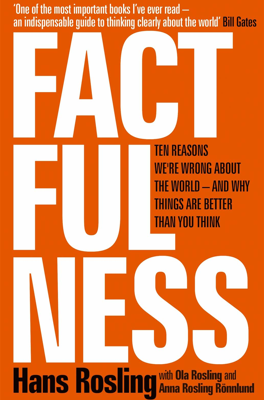The Destiny Instinct
Hans Rosling tackles the "destiny instinct," the belief that intrinsic characteristics preordain the fate of people, nations, or cultures, asserting they are destined to remain the same due to traditional values deemed immutable. This misconception constrains our understanding of global progress and potential changes.
Key Insights and Illustrations: - Investment Misconceptions: Rosling discusses a lecture he gave to financiers in Edinburgh, where he used data to challenge their perceptions that Africa was static and not progressing. Despite suitable investment opportunities in emerging African markets, many clients held preconceived notions that Africa’s destiny was unchangeable. - Experiencing Slow Cultural Shifts: Societies and their cultural practices are continuously evolving, often at a pace that's too slow to notice without close examination. Rosling emphasizes that changes in social media, technology, and global education exemplify rapid cultural shifts. - Illustration with Iran: Contrary to Western perceptions, Iran experienced substantial improvements in health and education, particularly for women. Rosling's interaction with a Swedish-Iranian student highlights the Western ignorance of fast-paced improvements outside their direct experience. - Misguided Notions About Africa: Common prejudices suggest Africa cannot develop prosperity or modernity. However, Rosling challenges this by showing data on African nations outpacing historical European growth in several metrics.
Strategies to Overcome the Destiny Instinct: - Recognize Slow Changes: Understanding that minor, incremental changes accumulate significantly over time helps dismantle the destiny instinct. - Stay Informed with Current Data: Continuously refreshing knowledge and staying updated with the latest data combat outdated perceptions. - Consider Generational Value Shifts: Comparing the values of different generations can illustrate dramatic shifts in cultural and societal norms. - Identify Cultural Transformations: Looking for counterexamples where presumed static cultural traits have evolved or reversed can help in realizing the fluid nature of culture.
Rosling's Personal Reflections: - Rosling shares personal anecdotes where even he had to confront and reevaluate his own perceptions about African development. These anecdotes involve interactions with influential African leaders who challenged his limited vision of Africa’s developmental potential.
Conclusion: Rosling concludes that by acknowledging and understanding slow and incremental changes, societies can adapt to and foster realistic expectations about the global progression and development. He advocates for a factual basis in forming views about cultural and societal changes, encouraging a shift from a deterministic to a dynamic outlook on world development.
